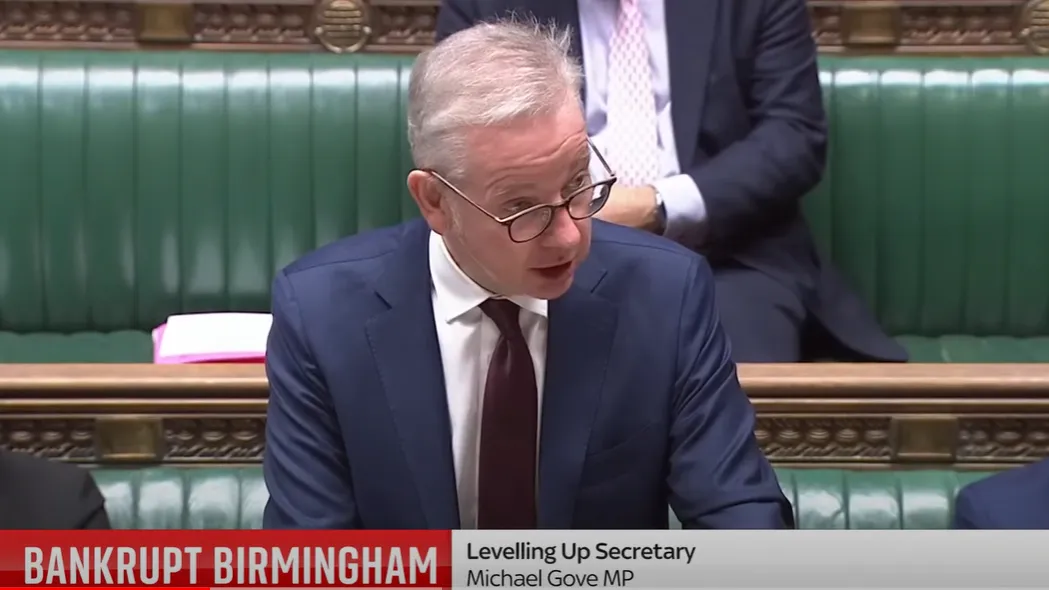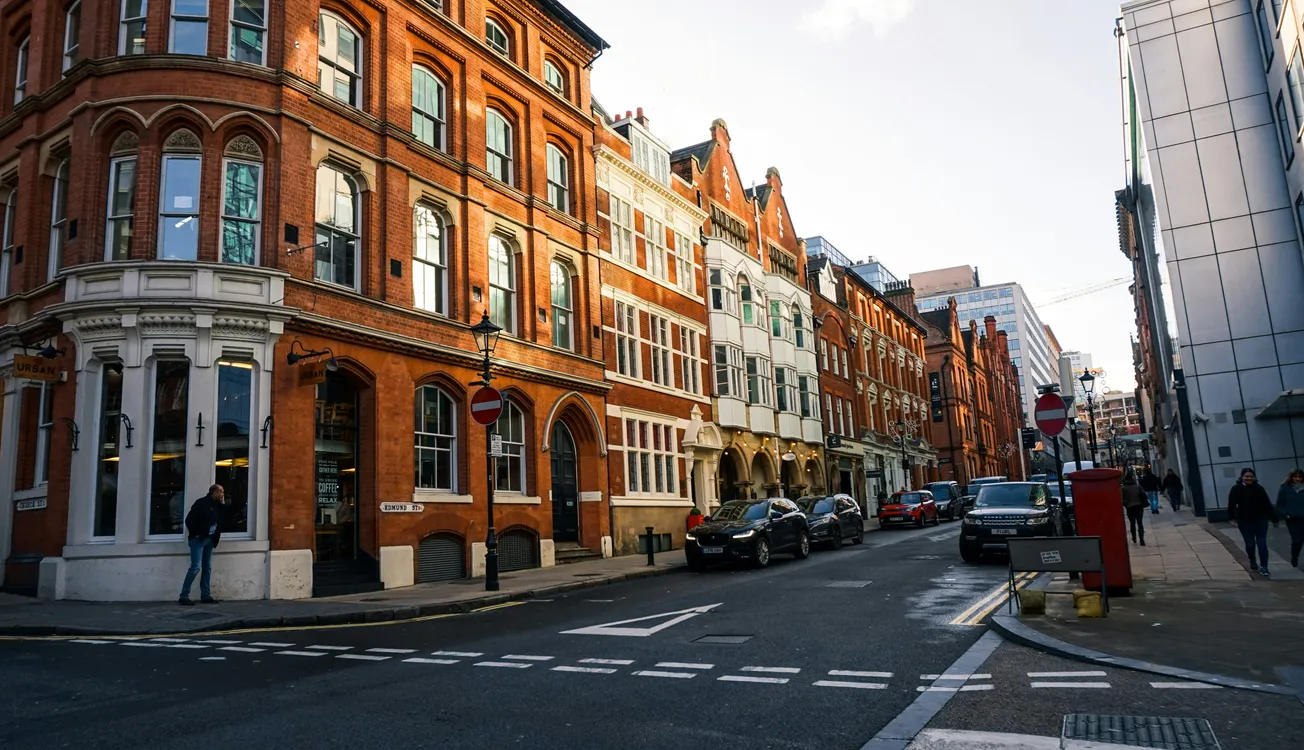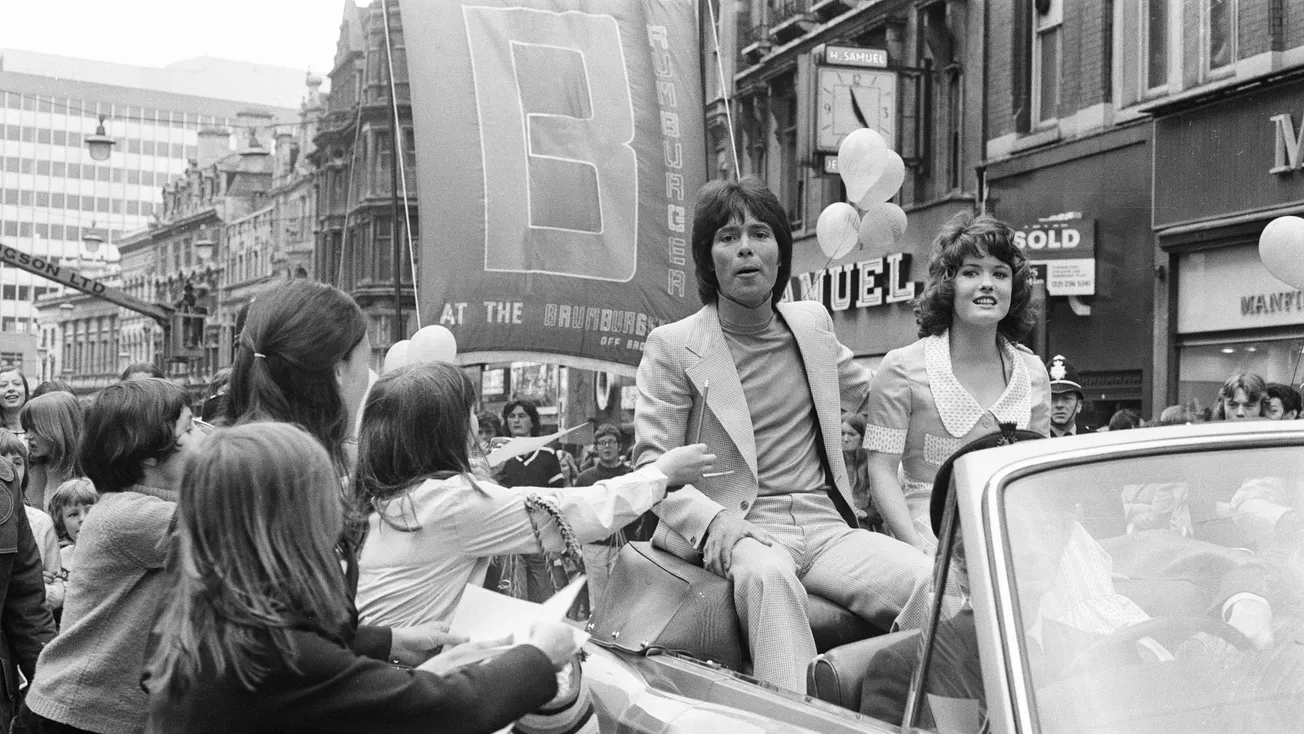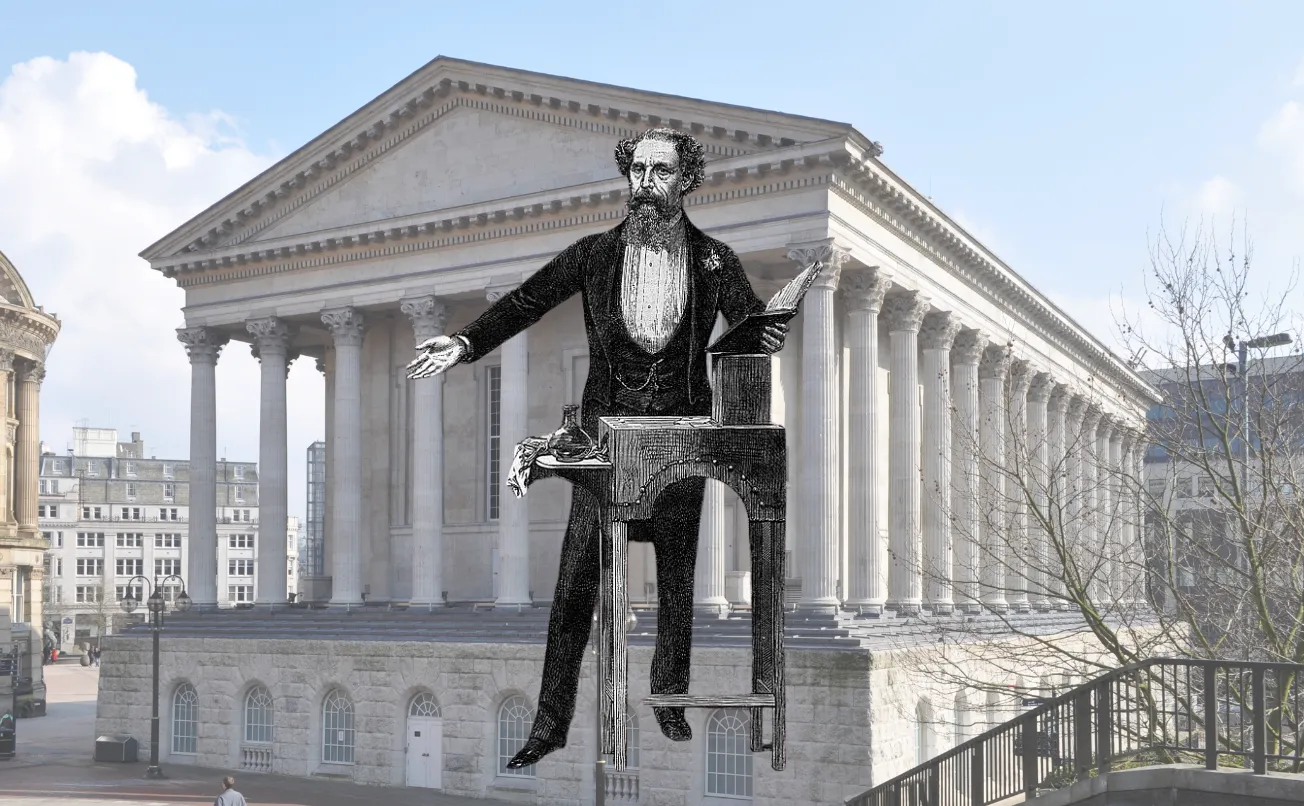Dear Patchers — Welcome to your Monday briefing.
Well, this week got off to a bang. If you’re like me, you will have opened your news apps and stared, bleary-eyed at your phones this morning to see a plethora of articles about Birmingham City Council published on several national news sites. The story that has Brum in Fleet Street’s sights? A new report by a thinktank that claims Birmingham’s bankruptcy was a “fiasco” that could have been avoided. Find more on that in today’s Big Story, but before we get into it, here are some highlights.
Looking back: Over the weekend, Ophira Gottlieb entered the sweaty and surprisingly welcoming world of competitive arm wrestling. “Really enjoyed this,” commented one Dispatch reader. Another wrote: “Brilliant piece! Original story and really well written.” Find out for yourself by clicking here to read.

Looking ahead: After shifting our schedule around last week to react to the concerning news that sodium cyanide had spilled into Walsall’s canals, we have three stories this week. The first is written by local GP and writer Dr Mark Williams who explains why he and his colleagues are so angry at the state of NHS primary care. Next up is an article that gets inside the controversy around the changes at the City of Birmingham Symphony Orchestra (CBSO) and on Saturday we take a look at new mayor Richard Parker’s first 100 days in power.
Editor’s note: The Dispatch is approaching our one-year anniversary and I can’t quite believe it! It seems like just yesterday I was brainstorming potential names with my boss, Joshi. Before I blow out that gigantic 1 candle, I’d love to reach 900 paying members — we are currently at 851, so incredibly close. You can help by hitting the subscribe button below and in return you’ll get access to all of our journalism, our lively comments section and our live events (I am currently planning the very first one and it’s set to be a belter).
"Your article on investigating the Alum Rock unrest was exactly the type of quality, balanced and informative local journalism Birmingham needs now. Subscribed so you can continue the good work and get more people really understanding what happens here rather than being misled by other poor sources of information or national outlets who don't understand the patch or lose interest after the cycle." — Dispatch member.
Weather: an upwards curve
🌦️Tuesday: The nicest version of changeable there is. Some late morning showers; largely sunny and cloudy. Max 19°C.
☁️Wednesday: Overcast, breezy, as well as warm. Max 19°C.
🌦️Thursday: English summertime returns. Light rain and a stiff breeze all day. Better earlier in the day. Max 19°C.
🌦️Friday: Same old, same old. Well, at least exactly the same as Thursday’s weather. Max 19°C.
⛅Weekend: A better weekend. Sunny and cloudy spells, consistently a nice temperature. Max 20°C.
We get our weather from the Met Office.
Big story: Michael Gove and the ‘fiasco’ — who broke Birmingham?
Context: Last September Birmingham City Council (as we are sure you’re aware) issued a Section 114 notice, effectively declaring itself bankrupt. The chief financial officer wrote in a report that the council did not have enough money to balance the books “because of the cost of providing for Equal Pay claims” — money potentially owed to council workers who had been unfairly paid compared to other staff members at similar levels. Those equal pay claims were estimated to be about £760m, a figure that had been revealed three months earlier.
The result: The cuts subsequently imposed by the council were largely based on that £760m figure. About £300m is set to be axed from public services by 2026. Plus, asset sales worth £750m and a 21% hike in council tax. Commissioners, appointed by former-Levelling Up Secretary Michael Gove, have been running the council since October.
An alternative view: An independent thinktank made up of researchers and accountants claims that £760m figure is wildly overstated and is calling for a full independent inquiry. They believe the new Labour government should step in and develop an alternative recovery plan for the city. The Audit Reform Lab, based at the University of Sheffield, also claims that the council’s botched implementation of an IT and finance system — Oracle ERP (Enterprise Resource Planning) — is the main contributor to the council’s financial woes. The research, which was led by Dr James Brackley, lays blame at the feet of the IT firm Oracle, the council, the former Conservative government and the auditors Grant Thornton. Brackley says they “all have serious questions to answer over their role in this fiasco”.

Déjà vu: If you think you’ve heard this one before, you’re right. The Audit Reform Lab publicised their work in February — and they aren’t the only ones who think Oracle is more to blame than equal pay either. In March we published an article that explores how the failed IT and finance system contributed to the bankruptcy and includes quotes from Councillor Fred Grindrod who think Oracle’s role in the crisis has been underestimated.
What’s changed? Since then, the Audit Reform Lab has published their findings in a 45-page report — one commissioned by the unions Unite, GMB and UNISON, who represent some of the workers making claims for equal pay (this has been highlighted by Grant Thornton in their critical response to the work). The firm also claims it has engaged with the Audit Reform Lab to clarify factual misunderstandings over the past few months and that the report still contains “assumptions and allegations which are incorrect”. They argue that because the thinktank is relying only on publicly available data, they are not fully informed.
What’s the issue with the audit? The council’s accounts for the years 2022/23 have not yet been signed off because accurate figures are not available due to the problems with the Oracle system. That means Grant Thornton has not been able to audit these accounts or the £760m equal pay liability — but the firm did refer to the estimate in its statutory recommendations for the council last September. That same month, former Levelling Up Secretary Michael Gove addressed parliament to say that Grant Thornton’s “assessment” was that the liability was likely to be £760m or more (in actual fact the estimate was provided by the council, not the auditors). Michael Gove has not given a statement.
The ‘real figure’: In March, lead commissioner Max Caller addressed a council scrutiny committee meeting to say the likely equal pay bill could be significantly lower than £760m. That amount, he said, was simply the maximum potential liability. He said: “Anybody who asks you questions about it, just say that’s the number until it’s not the number. Because it is pointless to go through an exercise of asking esoteric questions of things which don’t matter.” The Audit Reform Lab has estimated the real figure is approximately £250m.
What’s the alternative? The Audit Reform Lab is calling on the government to “redraw” Birmingham’s support package by removing the costs for Oracle from the budget deficit and capitalising against these — which would basically mean selling off assets to pay for the loss, rather than cutting services. That and the lesser equal pay liability, would make the city’s prospects seem a lot less daunting. The report has received the attention of West Midlands Labour Mayor, Richard Parker, whosaid: “This is a very interesting report, that raises some very important issues. It deserves full consideration.”
Part of a wider problem: The Audit Reform Lab also emphasises that Birmingham’s financial crisis is partly due to “chronic underfunding” of local government and major reform is needed, something Council leader John Cotton agrees with. He said: "Report after report shows that there's a national crisis in local government caused by 14 years of neglect from the previous Tory government, combined with major rises in demand and cost led pressures," he said. As for the commissioners, they say the “major deficit” has occurred for a number of reasons including “non-achievment of savings, unrealistic budget assumptions and service pressures”. In the past, Caller has called the crisis “self-inflicted”.
What’s next? All eyes are on the government — especially new local government secretary Angela Rayner — to see if they will intervene in Birmingham and how.
Photo of the week

A reminder that the West Midlands is not just built-up urbanism. This photo by a local photographer, who goes by the name Wordshore, was taken in a field in Worcestershire.
Brum in brief
🛍️Mailbox saved: Iconic upmarket mall, The Mailbox, has had its immediate future secured. Owned by Asset manager Martley Capital Group, the group secured £90m of new financing with £65m provided by specialist lender Leumi UK. Prior to this deal, Martley Capital had been looking at bids in excess of £120m. Dan Boakes, managing director of debt capital markets at Martley Capital Group thanked Leumi for their approach in helping to save the mall. “The speed and precision with which the team delivered, completing full credit approval in under three weeks, were commendable,” he added.
🛐Community building; community walking: The faith and climate charity Foosteps held its annual interfaith walk in Lickey Hills on Sunday, a three-mile stroll from Barnt Green Quaker meeting house to the Lickey Hills visitor centre. Backdropped by citywide tensions at the start of the month, Pete Doubtfire of Central England Quakers Peace Hub and Footsteps said it was a chance for people of all faiths to come together, connect, and reconnect with the local environment.

🚐Drivers block: A Midlands organisation which redistributes surplus food to those in need is scrambling to get more volunteer drivers. Fareshare Midlands helps 80,000 people each week by collecting good-to-eat food from supermarkets and redistributing to charity and community groups. However, they are about 15 drivers short of being able to continue the service. Fareshare's commercial lead, Laura Spencer, added: "Without that driver support, that may mean that we're not able to deliver the food that we get in every day."
Home of the week

Want to cosplay as a Cadbury’s chocolate factory worker in the early 1900s? This three-bedroom home set in the historic Bournville Village Trust estate is up for sale at £425,000. Original stained glass windows and striking, dining room double-door entrance included.
The interview: Writer-comedian Robert Wringham on his new documentary
Dudley-born writer Robert Wringham is working on a new documentary all about the mysterious 1980s performance artist the Iceman, aka Anthony Irving. His act consisted of bringing a large block of ice on stage and trying to melt it in a variety of creative ways. So far, so bizarre. A few years ago, when Wringham set out to write a book about Irving, he had disappeared — or had he? We spoke to Wringham for an inside look.
What made you want to create this film?
Ancestor worship. The comedians who came before me were all from 'alternative' comedy and, aside from the mega-famous ones like Alexei Sayle and Dawn French, they've become a bit obscure and have the potential to be forgotten. I want to correct that and make sure they're remembered. The film started with a book I wrote with the Iceman a couple of years ago. It only sold a couple hundred copies, but some of the people who read it really went bananas over it. One of them was a Wolverhampton-based filmmaker called Mark Cartwright. He'd been looking for a fit subject for a documentary film and he asked me to work with him on it. Before we knew it, we had famous comedians and old friends of the Iceman lining up to take part.

What is so fascinating about the Iceman?
His decisions are so strange. Comedians, generally speaking, go on stage to tell stories and jokes. But the Iceman went on stage to... melt a block of ice. Why? Even after spending months of my life with him to work on the book and the film, I still don't really know what's at the bottom of it. It's a mystery. But it's a really funny and bizarre mystery. The ice act divides rooms; some people are confused and annoyed by it, but others love it. I'm in the second camp. The more confused and annoyed the other camp gets, the funnier it becomes to the rest of us.
Will the film resonate with Birmingham audiences in particular and why?
It's a Brummie film really. Or a Black Country film at least. I'm from Dudley myself, the director is from Wolverhampton, our Executive Producer Michael Cumming (who directed Brass Eye and Toast of London) is a local lad too. Stewart Lee is from Solihull and Dr Roshan Doug, who has helped us out a bit, is a former Birmingham poet laureate. We've had great moral support from local band The Nightingales as well. The Mockingbird is exactly the right place for a screening. We want Brummies to come and give their opinion on it before practically anyone else has seen it. It's a tenner to get in, which isn't cheap, but we need to raise money to finish the film. Come on Birmingham, you've nurtured us for so long!
The film has a local sensibility too: everyone involved, including the Iceman, is extremely creative and clever but also very modest and down-to-earth. A bit like Brum itself really. Birmingham was my gateway to culture when growing up in Dudley in the 80s and 90s. Nostalgia & Comics (now Worlds Apart) near the Ring Road was an important place for me, and I first discovered comedy and literature in Birmingham too. It'll always be a part of me.

You can see a work-in-progress screening at the Mockingbird this Saturday (purchase tickets here).
Media pick
💻Inspired by last week’s article about Roy Fisher, we went on the hunt for more great writing about Birmingham poetry. This blog post taught us about the city’s role in merging industrial society with the arts, using WH Auden’s Bristol Street-inspired verse as a jumping off point. From the 18th Century, writes Jaap Harskamp: “Birmingham developed a distinctive culture of art and design, dominated by the historic importance of applied art to the city’s manufacturing economy.”
Things to do
Tuesday
🎨Until Thursday, you can head down to Wolverhampton’s Newhampton Arts Centre for the Summer Arts Club. Midday till 4pm, suitable for ages up to 11. All activities are artist-led with lunch provided. Sounds great. More here.
💌For those looking for love — or, at the very least, a speedy summer-end romance — you can head down to The Lost & Found for speed dating. For those in their 30s and 40s only. Book here.
Wednesday
🖼️Crafty and creative heads, there’s a social designed just for you. RA café in Kings Heath are hosting a collage social. Chat, make friends, do all things with paper. Click here for more details.
🎶Global phenomenon Hamilton is only around in Birmingham for the next couple of weeks. Tickets are still available if you haven’t seen it already. Book here.
Thursday
👻The Weird Walk of Warwick is a 90-minute walking tour of Warwick town centre, telling ghost stories, tales of gory murders and recollections of the famous faces that once lived here. On Thursdays, Fridays and Saturdays; only a tenner. Book here.
🎵The Upton-upon-Severn Sunshine Festival kicks off this bank holiday weekend. Five stages of music, surrounded by beautiful scenery. More information, with tickets starting at £25 for a day.








Comments